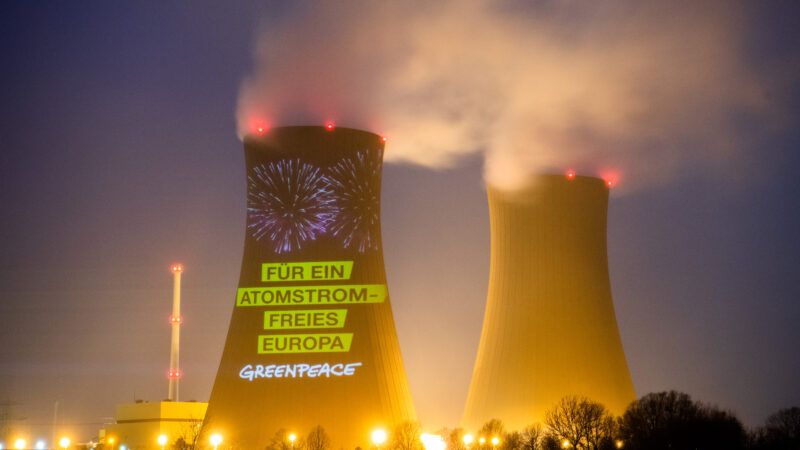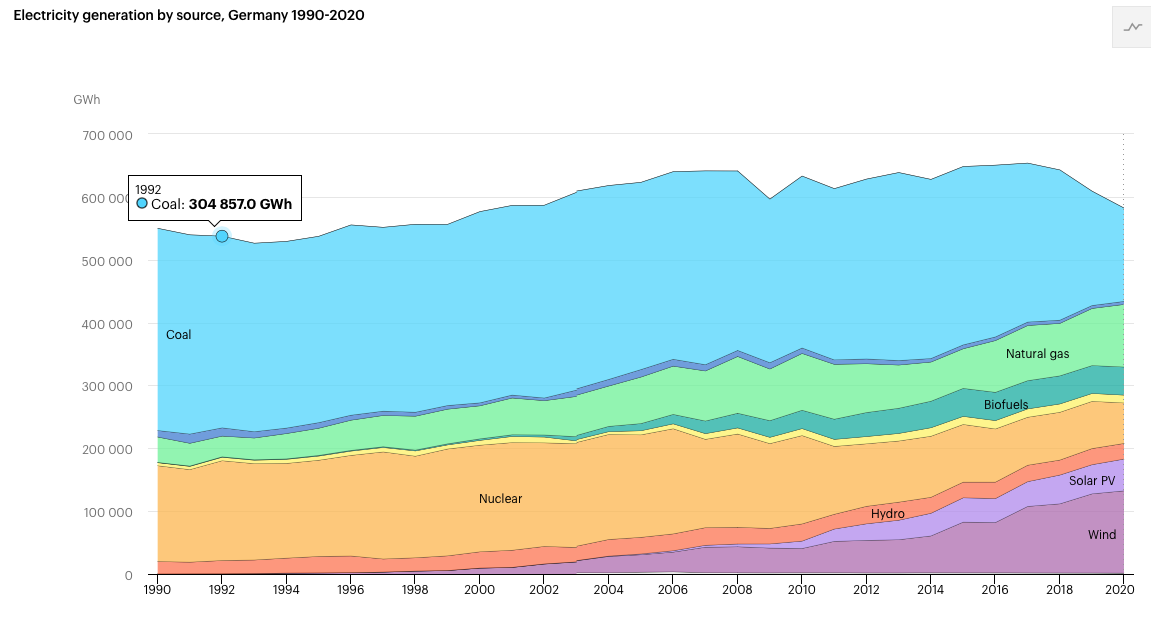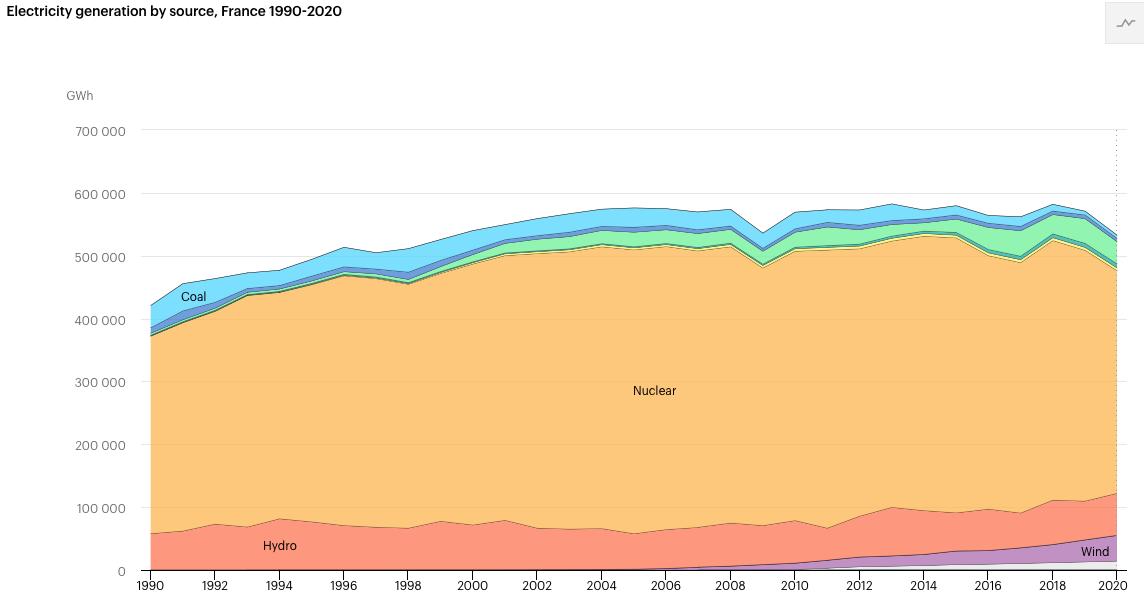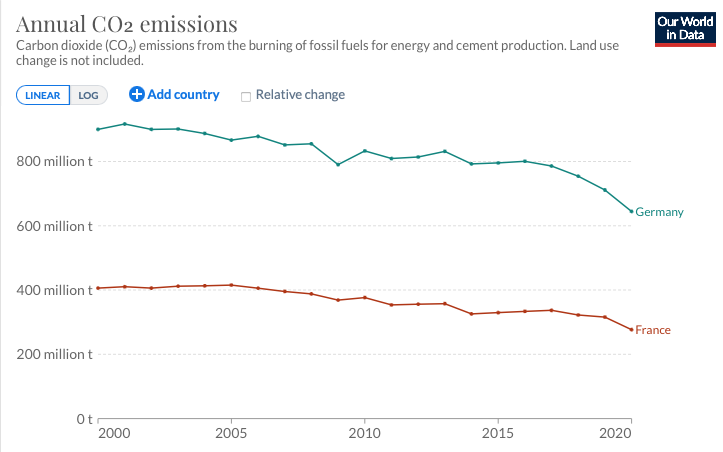Germany Shuts Down Three Perfectly Good Nuclear Power Plants
Teutonic carbon dioxide emissions and electricity prices are projected to increase as a result.

Electricity prices tripled in many European countries this winter, including in Germany, as renewable power supplies faltered and Russia seized the opportunity to boost the price of its natural gas exports. So, of course, the German government thought this was a fine time to permanently shutter three perfectly good nuclear power plants.
The closures are part of Germany's famous energy transition, widely known as the Energiewende, to a low-carbon, nuclear-free economy. Germany aims to reduce its greenhouse gas emissions to net zero by 2045 chiefly by switching entirely to renewable energy generation to supply electricity to residences, factories, and transport. That goal would be much more easily achieved if the country not only kept running its carbon-free nuclear power plants, but also built more of them.
According to International Energy Agency (IEA) data, about 45 percent of Germany's electricity in 2020 was generated from solar, wind, and hydro power. Nuclear power accounted for another 11 percent, which means that more than half of Germany's electricity was generated by carbon-free sources in 2020.

Now contrast Germany's electricity generation mix with that of France:

Over 90 percent of France's electricity in 2020 was generated by carbon-free sources, of which nuclear constituted 67 percent of the total. Annual carbon dioxide emissions have been falling in both France and Germany, but in 2020 total emissions in Germany were more than double that of France and per capita emissions stood at 7.7 and 4.2 metric tons, respectively.

Greenhouse gas emission intensity measures how many grams of carbon dioxide are emitted per kilowatt-hour of electricity produced. A 2021 report from the European Environment Agency found that in 2020 that Germany emitted 311 grams of carbon dioxide per kilowatt-hour compared to just 51 grams per kilowatt-hour in France. In other words, despite Germany's massive spending on renewable power, its emissions from electricity generation are still six times worse than France's with respect to adding planet-warming gases to the atmosphere.
How will Germany make up for the power lost from shutting down the three nuclear power plants? A new analysis by the admittedly pro-nuclear Environmental Progress activist group argues that the expected addition of solar and wind capacity will not be sufficient to make up for the loss of the German nuclear plants. Consequently, the group observes, "Next year, the share of German electricity generation coming from fossil fuels could be as high as 44 percent, compared to 39 percent in 2021 and 37 percent in 2020."
In contrast, French President Emmanuel Macron pledged in November that France will build more nuclear power plants. The new plants, he said, are meant "to guarantee France's energy independence, to guarantee our country's electricity supply and achieve our objectives, in particular carbon neutrality in 2050."


Show Comments (98)